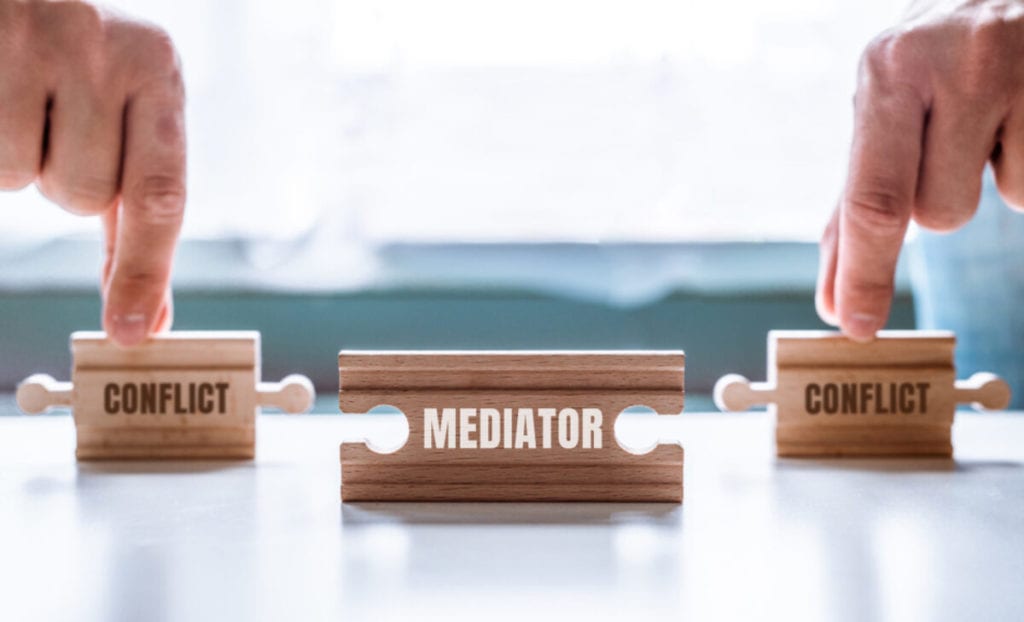When people think of taking legal action, something that is known as litigation, many immediately think of a trial and imagine a courtroom with a judge and jury. And while this is correct on many occasions, it is important to know that not all legal cases end up in court.
More often than not, parties choose an alternative to litigation, simply because it is easier, faster, and costs less most of the time. One such alternative comes in the form of mediation and it is perhaps one of the most important and popular ways of resolving disputes outside the courtroom and in a more informal setting, especially when it comes to family law and civil cases.
It is also not uncommon for the court to order parties to participate in it or for lawyers to recommend it to their clients.
So, if you have never heard about it before or if you have, but would like to learn more, here are some things to know about mediation.
What Is It?

Instead of the dispute outcome being imposed by the court, this process allows parties to determine it among themselves by involving a neutral third-party who can be but is not always, a lawyer.
Although it can occur as soon as the case has been filed or any time after, it typically happens only once the involved parties have reviewed all the submitted information and exchanged discovery requests.
The entire process is a bit less formal as it tends to take place in an office setting instead of a courtroom. On the other hand, its duration ranges vastly, meaning that an agreement can be reached in a few hours, a whole day, or multiple sessions in some instances. This mostly depends on the complexity and severity of the case.
Who Assists in the Process?
An expert known as a mediator is present during sessions and is professionally trained to help parties in reaching an agreement. They can work with both sides individually or together to resolve issues, work out the terms, and ultimately reach a settlement while staying impartial at all times. If you are interested in becoming one you can learn how to become a mediator here.
It is important to note that these professionals do not offer clients legal advice and they also do not determine the outcome of the case. They might provide guidelines and inform individuals on different rules or laws but it is the attorney’s job to advise their client whether they should settle or not.
Once you have decided to go for mediation, the first thing you will need to do is find a good, reputable mediator. Your lawyer will probably have some recommendations, so consider who to go for depending on their skills, location, and of course, fee.
Another significant thing to know is that, although these professionals can mediate in all types of disagreements, some offer their services in specific areas only.
For example, certain companies specialize in workplace mediation, others offer their services for commercial disputes, while some, like this website, provide divorce and family services.
What Are the Types?

1. Facilitative
Also known as traditional mediation, it is the most common type used to resolve disputes. It involves encouraging opposing sides to voluntarily reach an agreement on their own. In such cases, mediators refrain from imposing any decisions, recommending solutions, and they typically keep their views and opinions hidden.
2. Evaluative
This kind is the direct opposite of the traditional type, so professionals are more likely to recommend solutions, make suggestions, and let their opinions be known.
The experts are also more likely to offer insight on the legality of arguments and determine their fairness as well. During this type of mediation, the third-party professional is commonly a lawyer.
3. Transformative
This is a newer concept aimed towards transforming the disputant’s relationships by the end of the session or sessions through empowerment and recognition. This is perhaps the most ambitious and difficult out of the three since it is meant to empower parties to acknowledge each other’s needs and interests, resolving their disagreement at the same time.
What Is the Process?
It typically consists of 5 parts that include:
1. The Introductory Meeting
This initial meeting is meant to allow all parties involved to get acquainted with the mediator, familiar with the environment, and comfortable with the matter. The third-party individual will also take their time and outline the process, as well as discuss and determine the protocol.
2. The Statement
Both parties involved will have a chance to speak on the issue and tell their side of the story. Since the entire point of this alternative is to resolve matters fairly and reasonably, it is important for the individual that is not speaking to remain silent.
3. Information Gathering
The mediator must receive certain information such as detailed facts, evidence, and any other type of information needed. This can greatly help the professional assist the case. The expert will also question both sides to determine the reasons why disputants have acted in a certain manner or why they are requesting a certain outcome.
4. Identification of the Problem
There is not much to say about this step, except that the mediator will likely discuss with the parties what they found the heart of the issue is based on all the gathered information.
5. Bargaining
As soon as everything is determined and understood, the negotiations will commence. In most cases, the mediator will offer a proposed settlement and allow the participants to make changes to it until a reasonable solution is reached.
Private meetings are also possible and they are conducted under full confidentiality, allowing participants to openly discuss their emotions and opinions with the third-party expert.
Conclusion

This alternative does require time and effort but is still a better solution than immediately opting for litigation. Even in cases when an agreement is not possible and participants end up in the courtroom, everything they have said during the mediation process cannot be used against them at the final hearing.
At the end of the day, no matter what legal process one opts for, it is always best to first consider every option and understand the advantages and disadvantages of each before making a final decision.
 Imagup General Magazine 2024
Imagup General Magazine 2024



